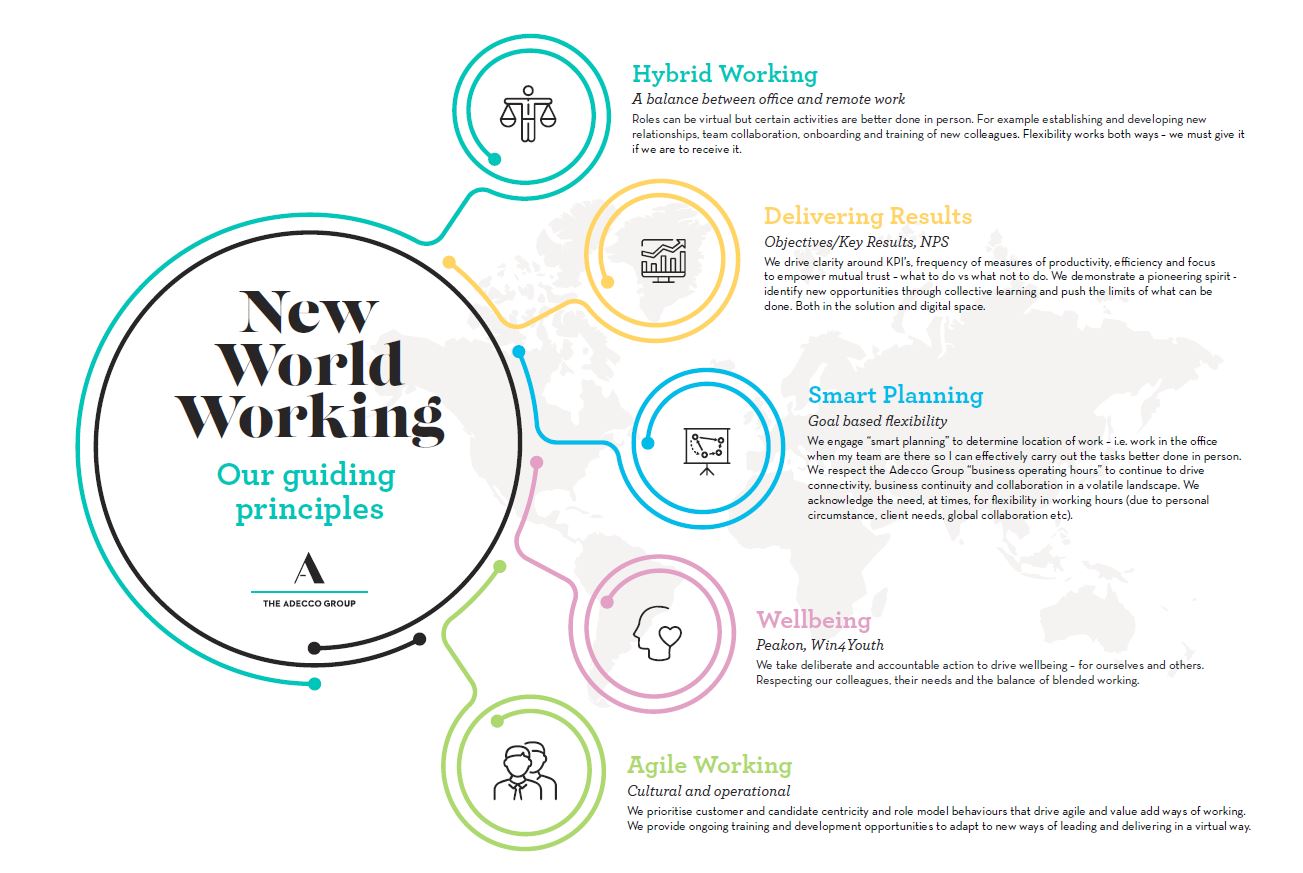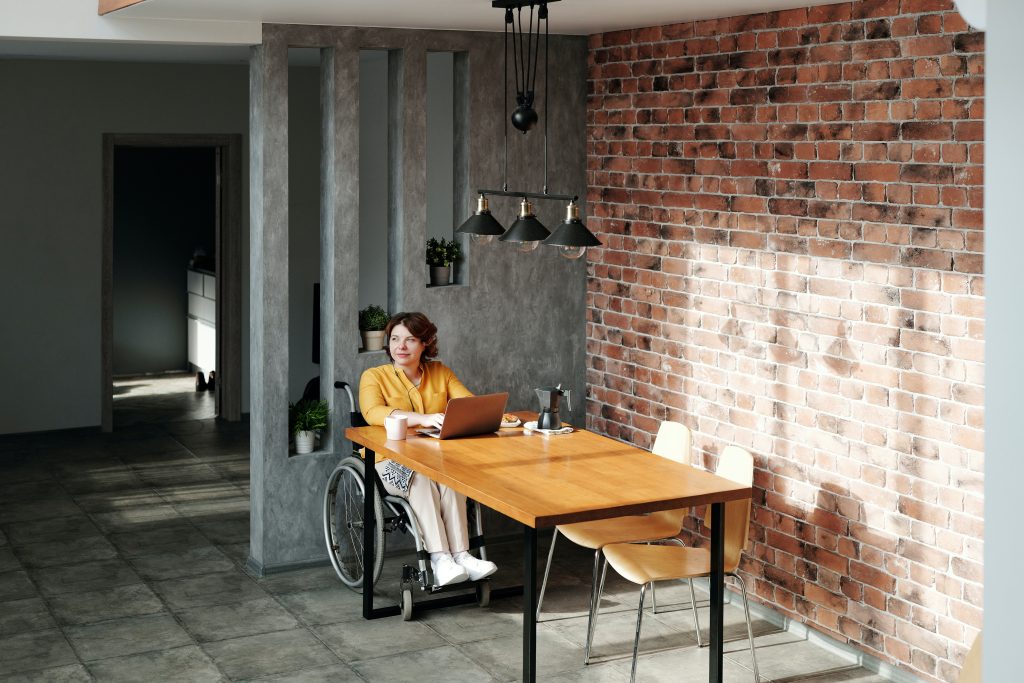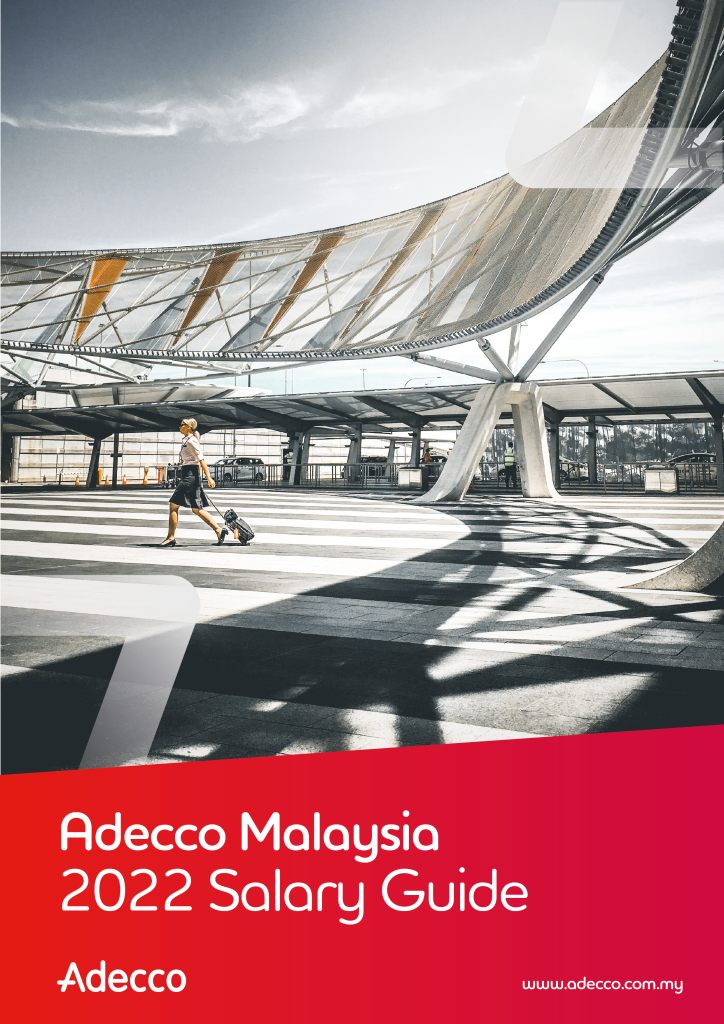CEO Voice: Navigating the new normal: Things to consider when introducing new flexible working models
Background photo created by fanjianhua – www.freepik.com
This article was authored by Alain Dehaze, CEO of The Adecco Group. This article originally appeared in The Adecco Group.
Every cloud, we are told, has a silver lining. And while it might be hard to find positives from something as devasting as a pandemic, one good thing to come out of the Covid crisis is the chance to develop our professional environments in a better, more sustainable, and inclusive way. Though the pandemic is not yet over, the rapid roll-out of vaccines globally means that we are hopeful to leave it behind soon and kick-start a better world of work.
As the world’s leading talent advisory and solutions company, we are looking beyond the crisis and continuing the momentum to evolve to more sustainable ways of working. By proactively adapting to this changing environment we can support our colleagues, associates, partners and clients as they prepare for the next normal. So what will that look like?
There are many studies, including our extensive Resetting Normal research, that suggest employees want to see a more flexible approach to remote working and why wouldn’t they? Within the Adecco Group for example, we saw some 30,000 colleagues move to a work from home environment, virtually overnight. It was genuinely inspiring to see people not only adapt to a different way of working, but also continue to keep hitting targets and, in our case, continue to facilitate work for more than 400,000 people globally every single day over the course of the lockdowns.
So, the last 18 months have proved that remote work doesn’t come with a loss of productivity, and that a more inclusive and flexible way of working is possible. The challenge for CHROs is to capitalise on this and build the right structures, resources and policies to ensure this new way of working delivers an inspiring and sustainable working environment.
At the Adecco Group we are introducing a new universal hybrid framework that will support colleagues keen for office-based, mixed and remote working. These principles will be driven locally, on a country-by-country basis and based on local Covid-19 government regulations.
The 5 guiding principles for the new world of work
To introduce a new flexible working model, HR leaders need to think beyond the location of its employees. We have developed the New World Working Guiding Principles, a guidance toolkit that sets out five principles and provides check lists, self-assessments, and further resources aimed at individuals, teams, and leaders.
1. Hybrid working:
Recognising that collaborative relationship building is often better done in a physical space, we want to establish a healthy balance between in-person and virtual working. We encourage a minimum of 2 days a week in the office and 50% overall per year. Some roles may call for more or less time in the office so the framework allows flexibility for each individual and their team. Hybrid working will affect our office space which will evolve to foster more collaboration. Pre-pandemic, 70% of our office was given to individual workspace. We are now looking to reconfigure our offices so that 50% of our space is dedicated to maximising comfortable, effective collaboration areas.
2. Delivering results:
69% of employees said in our Resetting Normal research that contracts should be based on results rather than hours worked. In a hybrid model, it’s vital to provide clear measures of productivity based on output and merit. But also, clarity on what productivity means and how it is measured for each team and individual. We have created resources for leaders such as scorecards and guidance on how to align best on key performance metrics.
3. Smart planning:
Thinking about how we schedule our time is equally important. “Smart planning” means leveraging technology and data to help us make decisions on how to best plan how we work. It could mean working in the office when you have a team collaborative session, working from home if you are dedicating more time to calls or planning around a doctor’s appointment or family obligations. It’s about respecting company, colleague and client needs and expectations.
4. Wellbeing:
The wellbeing of our colleagues and associates is crucial as we believe people are at the heart of every company. Our New World Working Guiding Principles take deliberate and accountable action to drive wellbeing – for ourselves and others. They provide resources and suggestions to ensure focus time, meeting limits and break times for leaders and their teams.
Twenty eight percent of employees said on our Resetting Normal research, that their mental health worsened during the last year – and only 10% of respondents felt their managers were able to help them cope with this. The new hybrid world means leaders also need to evolve, with emotional intelligence now coming to the fore.
5. Agile working:
Last but certainly not least, we prioritise client- and candidate-centricity and we role-model behaviours that drive agility and add value to the ways we work. Our aim is to provide ongoing training and development opportunities to our leaders and colleagues so we can adapt to new ways of leading and delivering in a virtual way.
When considering these 5 guiding principles, we fully recognise that one size does not fit all, so these principles allow flexibility. It is this flexibility that reinforces the significance of continuing to build our culture on the basis of trust. And it doesn’t end here. It’s an ongoing journey working with our teams around the world and listening to our colleagues’ feedback regularly to support our people as we enter this new era of work.
Will offices disappear in the new world of work?
During the last year, I’ve been asked this question often. My answer is clear: I believe physical offices will still play an important role in the next normal. There are some areas where in-person, face-to-face contact is vital. For me, these revolve around culture, collaboration, and coaching.
I cannot emphasise enough how important culture is to any organisation, and to really drive and nurture it, I believe a level of physical presence is required. I liken this to a family: would it be possible to feel part of that familial embrace via a Zoom call? Would a Christmas dinner be the same if you were only there digitally? It’s the same with remote colleagues. You can tell them about your culture, but when they are in the office, they can see, feel and really be part of it.
A level of physical presence is vital too when it comes to effective collaboration, as is evidenced by research. According to a study, while 73% of staff say they want more flexibility with work from home policies, 67% also want more in-person collaboration. I fully understand this. You will know from your own personal experience that while videoconferencing has proven to be invaluable during Covid times – and will remain so moving forward – nothing quite beats in-person conversations and brainstorms when you are collaborating and aligning on projects. In my experience, when people are physically together the alignment processes are extremely fast, which can be more challenging when people are only working digitally.
For me, this is true too for on-the-job coaching. We know virtual mentoring and coaching programmes are effective. However, many leaders struggle t support and coach their teams in a virtual environment on a day-to-day basis. Colleagues need to feel included and valued, particularly in an onboarding situation. Even more so for junior team members in the first steps of their careers, where meeting physically and experiencing the culture can speed up their integration.
People have shown they can overcome many obstacles and keep efficiency and productivity high when working remotely. The emphasis now for us as leaders must be to show them the same level of responsibility by providing a new flexible working model in which they can collaborate, be coached effectively and where they feel part of the organisation’s culture. That is why I have made our internal New World Working Guiding Principles publicly available for you. You can download them here.
I would like to hear from you how you are preparing for the next normal. My team and I are here to help you future-proof your workforce and prepare for the next normal. Don’t hesitate to comment here or contact us: globalbusiness.development@adeccogroup.com











